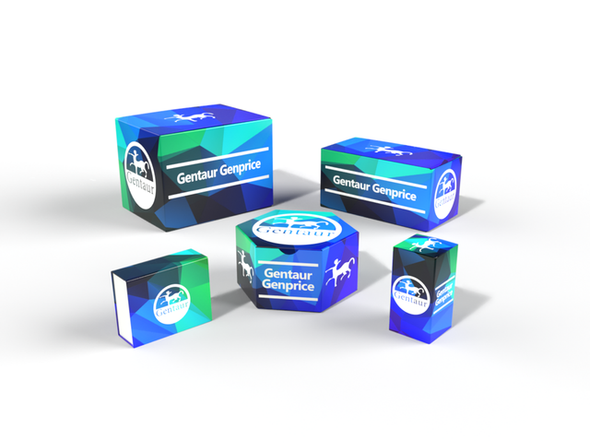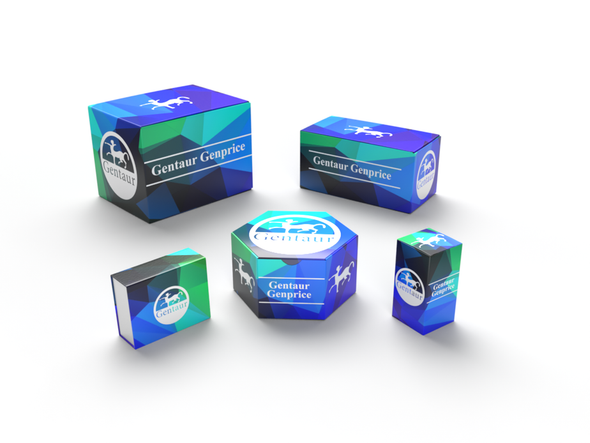Description
EED Antibody | 7009 | Gentaur UK, US & Europe Distribution
Host: Rabbit
Reactivity: Human, Mouse, Rat
Homology: Predicted species reactivity based on immunogen sequence: Chicken: (100%) , Bovine: (100%)
Immunogen: EED antibody was raised against an 18 amino acid synthetic peptide near the amino terminus of human EED.
The immunogen is located within amino acids 30 - 80 of EED.
Research Area: Stem Cell
Tested Application: E, WB, IF
Application: EED antibody can be used for detection of EED by Western blot at 2 μg/mL. For immunofluorescence start at 20 μg/mL.
Antibody validated: Western Blot in human samples and Immunofluorescence in human samples. All other applications and species not yet tested.
Specificiy: Four alternatively spliced transcript variants have been observed.
Positive Control 1: Cat. No. 1313 - Human Testis Tissue Lysate
Positive Control 2: Cat. No. 10-501 - Human Heart Tissue Slide
Positive Control 3: N/A
Positive Control 4: N/A
Positive Control 5: N/A
Positive Control 6: N/A
Molecular Weight: Predicted: 49 kDa
Observed: 49 kDa
Validation: N/A
Isoform: N/A
Purification: EED Antibody is affinity chromatography purified via peptide column.
Clonality: Polyclonal
Clone: N/A
Isotype: IgG
Conjugate: Unconjugated
Physical State: Liquid
Buffer: EED Antibody is supplied in PBS containing 0.02% sodium azide.
Concentration: 1 mg/mL
Storage Condition: EED antibody can be stored at 4˚C for three months and -20˚C, stable for up to one year. As with all antibodies care should be taken to avoid repeated freeze thaw cycles. Antibodies should not be exposed to prolonged high temperatures.
Alternate Name: EED Antibody: HEED, WAIT1, Polycomb protein EED, WD protein associating with integrin cytoplasmic tails 1, hEED
User Note: Optimal dilutions for each application to be determined by the researcher.
BACKGROUND: EED Antibody: The EED protein (WAIT-1 or WD protein associated with integrin cytoplasmic tails-1) , also called embryonic ectoderm development, is a member of the superfamily of WD-40 repeat proteins and widely conserved polycomb group (PcG) family of proteins. The polycomb group (PcG) is a large and evolutionarily conserved set of genes whose products act in multimeric complexes to modify histones, which are then thought to cause stable and heritable states of transcriptional repression. EED shuttles between the nucleus and the plasma membrane and can interact with the cytoplasmic tail of integrin β7 subunit. EED exerted an antiviral activity at the late stage of HIV-1 replication.










